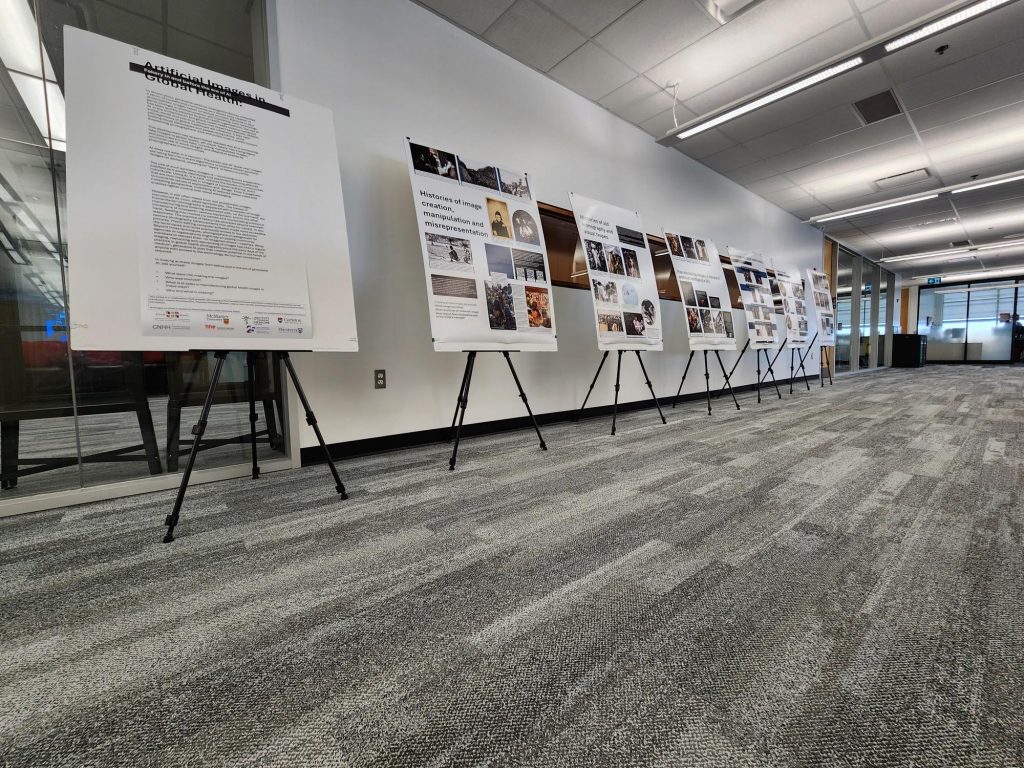The CNHH would like to draw the attention of its membership to the following competitions currently being offered through Global Affairs Canada.
Global Affairs Canada – Open Insights Hub – POR
Ottawa (Ontario)
From September 2024 to August 2025
The Cadieux-Léger Fellowship will last up to 12 months. The Fellow will receive a total bursary not greater than $48,000 contingent on duration.
For further information on the organization, please visit Global Affairs Canada
For further information on the program, please visit Research Affiliate Program (RAP)
Closing date: 25 June 2024 – 23:59, Pacific Time Who can apply: Persons residing in Canada, and Canadian citizens and Permanent residents abroad.
From GC Jobs:
The Open Insights Hub of Global Affairs Canada (GAC) is pleased to announce the selection process for the 2024-2025 Cadieux-Léger Fellowship.
The Cadieux-Léger Fellow is integrated within the Open Insights Hub at GAC as an analyst. The Hub engages with external experts and fosters relationships with the knowledge institutions as part of its research and analysis on foreign, economic and international assistance policy issues, as well as environmental scanning to identify emerging global trends and changes. The Cadieux-Léger Fellow’s activities will focus on themes of relevance to Canadian international interests.
While at GAC, the Fellow is expected to advance the Hub’s current thematic agenda, including understanding the evolving structure of international relations and its implications for Canada. Priority areas of focus include: Canada’s vulnerabilities and opportunities in the context of geopolitical risk; navigating great power competition; engaging the middle ground (or Global South); examining Canada’s international toolkit of policies and programs; the Canada-United States bilateral relationship and impact on Canada’s broader foreign policy; economic security and resilience; and the international dimensions of horizontal issues as emerging technologies, or climate change and the green transition.
We welcome proposals related to these themes and others that have clear relevance to Canadian foreign policy priorities, notably international advocacy and diplomacy. The relevance and quality of the research proposal is an important factor in the selection process, as are interpersonal skills and capacity for engagement and teamwork.
The Open Insights Hub aims to create an engaged, strategic, rigorous, collaborative and innovative environment through knowledge-sharing and interaction with internal and external experts, assumption testing, exchanging experience and facilitating innovative ideas, as well as soliciting and welcoming input in new ways from a variety of stakeholders. Accordingly, the Fellow would be expected to build networks within GAC, the Government of Canada and with external experts. A particular emphasis will be placed on identifying and engaging new sets of stakeholders whose good ideas can be leveraged.
Candidates are expected to work in presence at Global Affairs Canada in Ottawa.
Positions to be filled: 1 or 2, funding for a second Fellow to be confirmed
Positions to be filled: 1
For further information including eligibility and application requirements, please visit the GC Jobs posting for the 2024-2025 Cadieux-Léger Fellowship.
Application deadline: 15 July 2024
From GAC:
Global Affairs Canada (GAC), in collaboration with the Social Sciences and Humanities Research Council (SSHRC), is pleased to announce the seventh edition of the International Policy Ideas Challenge. The objective of the program is to draw on the network of talented Canadian graduate students, post-doctoral fellows, and early-career civil society researchers to identify concrete, innovative solutions to emerging international policy challenges faced by Canada.
The program offers applicants a chance to test their skills at translating academic expertise into policy language and insights. Applicants are invited to submit brief proposals. GAC will select between 5 and 10 winning proposals and provide coaching to researchers as part of further developing their proposals into full policy briefs. Winners will present their briefs to Government of Canada officials as part of the virtual Ideas Symposium, taking place in late 2024.
- Call for proposals launch: June 14, 2024
- Application deadline: July 15, 2024
- Assessment of applications: July – August 2024
- Selection of the 5 to 10 winning entries: August 2024
- GAC and SSHRC announce winners: August 2024
- Four coaching sessions (roughly 3 days in total; see “Coaching,” above): August-October 2024
- Policy briefs due: Exact date TBD
- Virtual Ideas Symposium to present final research products to Government of Canada officials at GAC: November or December 2024
For additional information, eligibility, application, and proposal requirements, potential themes, and an FAQ, please visit the International Policy Ideas Challenge 2024-Call for Proposals web-page.




